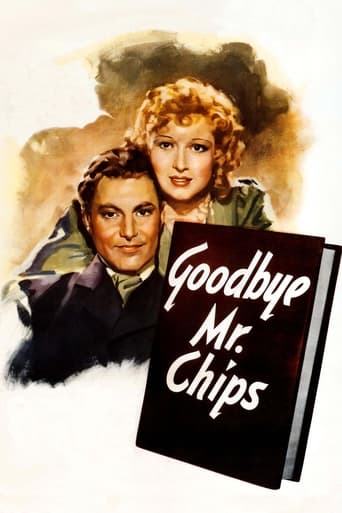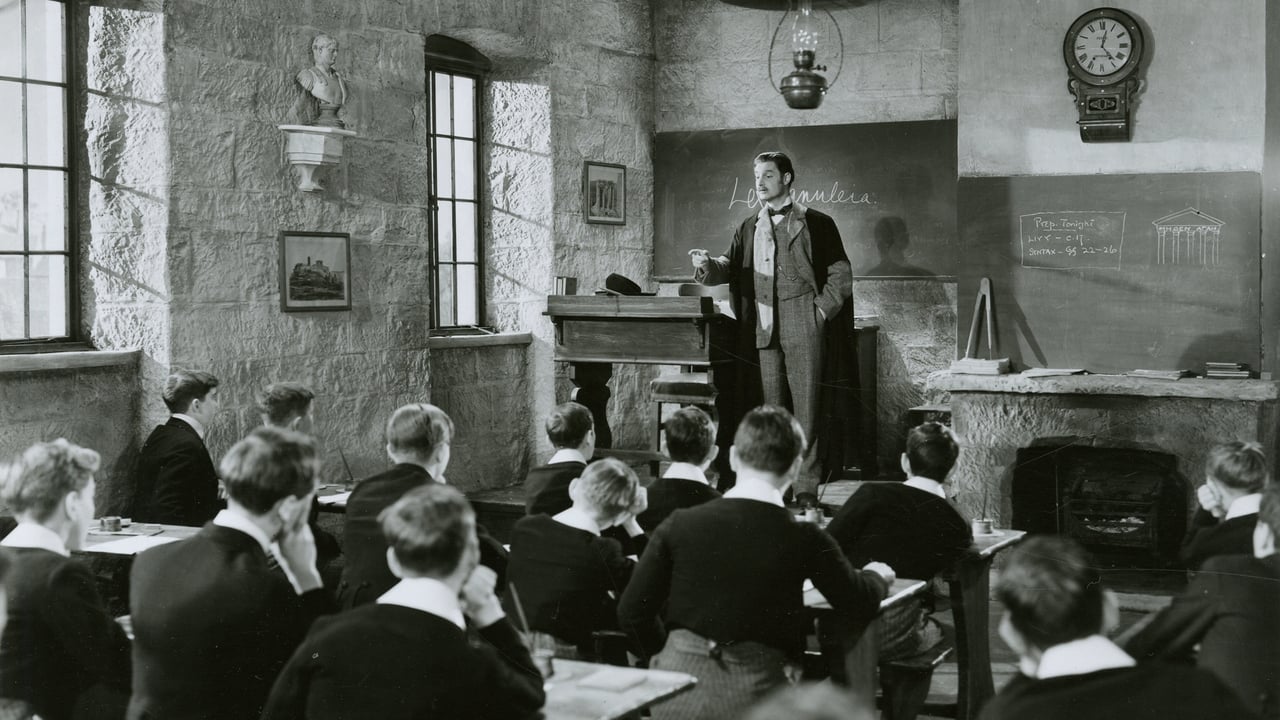grantss
This version of Mr Chips, the original, is regarded as the classic, but I prefer the 1969 version, starring Peter O'Toole and Petula Clark. Similar plot to both, though the 1969 tweaked the events in Mr Chips' life, to match world history. The 1939 version is good, and particularly emotional, especially towards the end. However, it does feel stuffy and stiff. That may just be a function of the era in which it was made and the era it was portraying. One plus the 1939 version has over the 1969 one is that it isn't a musical, but then that may just be me - I generally don't like musicals!Performances are OK. Greer Garson shines as Katherine and deserved her Best Actress Oscar nomination. However, I don't know how Robert Donat got the Best Actor Oscar. His performance is OK, but not brilliant. I often found him a bit irritating, in fact. Overly wooden (though his character was such). Yet he managed to beat out Clarke Gable's performance in Gone with the Wind and James Stewart's in Mr Smith Goes to Washington...Worth seeing, but if you have to choose, see the 1969 version instead.
vincentlynch-moonoi
I suppose there are those who see this film as silly sentimentalism. But if you were a retired school teacher and principal, as I am, the sentiments in this film are very real. As I watched this film...again...so many of the children I worked with in middle schools came back into my mind. So, sentimental, yes...and beautifully so.Frankly, I've never cared for Robert Donat in his other films, but this was, for him, a tour de force. Greer Garson's role is pivotal, of course, although she in only in the middle of film for a fairly short while...but what a breath of sunshine she was. It's also interesting to see Paul Henreid here as a fellow teacher. Terry Kilburn, who played several generations of boys from the Colley family was quite adorable...and...as of this writing...is still alive! Robert Donat died at age 53 of a brain tumor. His last spoken words in a film were prophetic, "We shall not see each other again. I think. Farewell" To which the acting world surely said, "Goodbye, Mr. Chips."
Robert J. Maxwell
If you watch this expecting a kind of topical biography of a teacher at an English school for boys, a gentle and unspectacular story, with romance, a growing acceptance of one's fate, and a lot of sentiment, you'll get what you expect.They run these sort of movies out from time to time. "It's a Wonderful Life," "Mr. Holland's Opus," "The Long Grey Line." The narratives tend to span generations. I found this one rather interesting and it's not surprising that it received so much public acclaim that Michael Redgrave was able to do a loony impression of Robert Donat's Mr. Chips in "The Lady Vanishes." You can't help liking it.Donat begins his teaching career as a nervous wreck, uncertain and stiff. But then he runs into Greer Garson in an improbable setting. Their marriage brings him a bit of ego strength. Of course, Garson (and the baby she's been carrying) have to die in order to boost the ratio of sentiment to everything else.Donat has one funny moment -- aside from his awkwardness. The Headmaster wants him to switch from the received pronunciation of Latin, in which "c" is pronounced "see", to the new modified and older version in which "c" is pronounce like "k". By this time, the middle-aged Mr. Chips has become defiantly laggard, declares hotly that he will never bring himself to pronounce Cicero as Kikero, and storms out the door.Yet, it's far from a comic story. If you like love, romance, tragedy, small triumphs, you'll love it.
Karl Self
... because this is also a deeply reactionary movie full of platitudes. Mr. "Chips" Chipping is an affable and somewhat scatter-brained Latin and Greek teacher at an elite English boarding school, and this movie shows his career over 60 years from young man and inept teacher during the Victorian age, until he's called back from retirement to finally serve as headmaster during the Great War (this movie came out just as a much greater war was immanent). In the process, the movie euphemizes corporal punishment, crass class differences (the aristocrats among the boys will become commanding officers upon graduation, the hoi polloi will go to the trenches) and the whole drudgery of boarding school education. That the movie still remains watchable today is due to a good script, excellent acting, and the fact that the placid story is beset by fairly realistic tragedy: Chips is a loner until his Fifties; when he eventually finds a wife who's young and radiant to boot, she dies during parturition. He never fully achieves his ambition of becoming headmaster, and sees waves of his students and friends die in the trenches of the First World War. This movie remains watchable because it never fully caves in to sentimentalism.



 AD
AD




